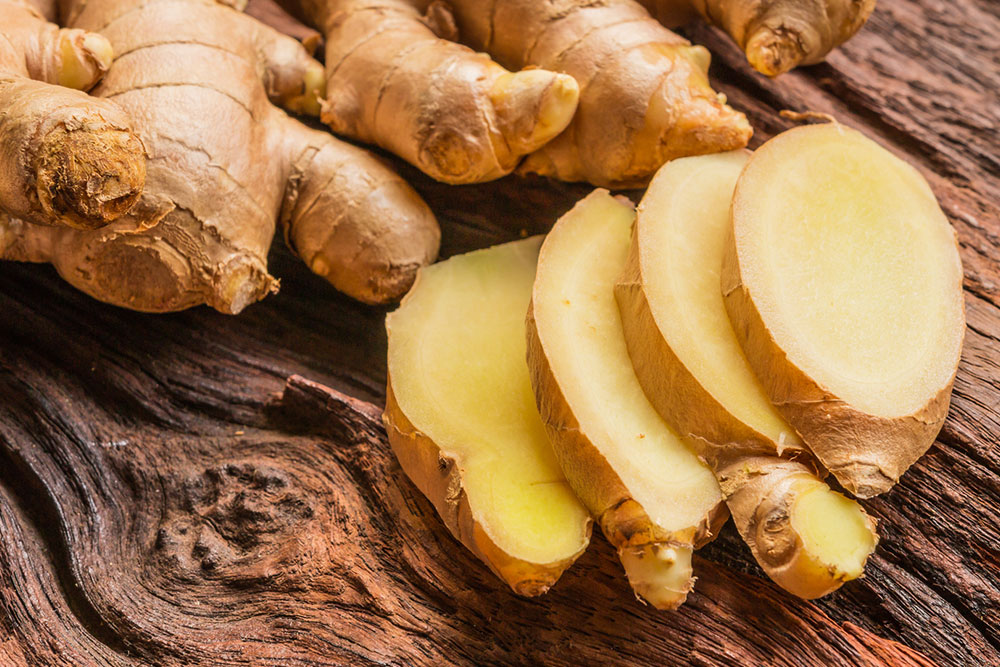Top 11 foods that may help relieve heartburn

Gastric acid is naturally produced in the stomach to help break down food. Heartburn and acid reflux occur when this acid backs up into one’s esophagus, which is a tube that carries the food down. Heartburn is a common phenomenon that can get triggered due to various reasons like overeating, sleeping right after having meals, or eating spicy foods. The first line of defense for it is making changes to one’s food regime.
Foods that help relieve heartburn
Bananas
Bananas are one of the most highly nutritious and versatile foods in recipes. They are alkaline or non-acidic in nature and are known to neutralize the stomach acids. Bananas also layer one’s esophagus lining and enable the easy passage of food from the pipe, reducing friction and irritation. The pectin fiber found in this fruit can also help one to feel full for a longer time.
Apart from bananas, there are several other alkaline foods that help suppress the stomach acids. Some commonly found in the market include cauliflower, fennel seeds, and melons.
Salmon
Fish like salmon are a powerhouse of omega-3 fatty acids. They also contain lower levels of unhealthy fats and are easy to digest, making them a good choice for heartburn. Some other seafood options best for acid reflux include tuna and white fish like Mahi-Mahi, halibut, or tilapia.
High-fiber foods
Fiber is found in most whole grains like brown rice or wild rice, quinoa, and oats as well as certain vegetables like asparagus, broccoli and green beans. Fiber-rich foods make one feel full for a long time, which helps avoid overeating and lower the risk of heartburn. Fiber also takes a longer time to digest and is known to absorb the excess acid in the stomach. Moreover, one should drink more water throughout the day when including fibrous foods in their daily meals since the nutrient requires fluids to digest well.
Salad greens
Leafy vegetables are not only easy on the stomach but also a versatile and highly nutritious food choice. For instance, a plant-based Mediterranean meal, which is rich in salad greens like lettuce, spinach, kale, and broccoli has shown to reduce the frequency of acid refluxes in people. However, one should be mindful of acidic or high fat salad dressings and toppings like onions and use them sparingly to not trigger the condition.
Egg whites
Egg whites are a rich source of protein and can help with acid reflux. But one should opt for poached or boiled egg white than the fried option for better health. Further, the egg yolk contains high levels of fats, which can aggravate the condition and is best avoided during flare-ups.
Root vegetables
Sweet potatoes, carrots, and beetroots are rich in soluble fiber and other essential nutrients, which can help one to feel full for a long time and reduce the risk of acid reflux. Root vegetables are also non-acidic, non-spicy, and versatile foods that can be blended into a variety of meals, from breakfast to dinner.
Water-rich foods
Foods rich in water content are anti-inflammatory, anti-oxidant, and help ease digestion. They also suppress the stomach acids and help manage heartburn. Some of these water-rich and gut-friendly foods include watermelon, muskmelon, celery, and cucumber. One can also include broth-based soups for nutritional boost.
Non-fat milk or yogurt
Non-fat milk has shown to reduce stomach acid and provide instant relief from heartburn. Similarly, low-fat yogurt contains probiotics, which can aid digestion as it introduces good bacteria in the stomach and soothes inflamed esophagus. Low-fat milk and yogurt can be added to a variety of recipes, including smoothies, oats, and salad. However, one should avoid full-fat milk since that can aggravate heartburn. Those who are lactose intolerant can opt for plant-based milk, like nut milk and coconut milk.
Ginger
Thanks to its antioxidant and anti-inflammatory properties, ginger has been traditionally used to boost digestion, ease heartburn and gastroesophageal irritation, and neutralize stomach acids. One can have ginger tea by inducing hot water with ginger and sipping it during heartburn flares.
Avocados
Avocados are a rich source of healthy unsaturated fats and are known to absorb excess stomach acids and soothe irritated esophagus due to frequent acid reflux. Apart from avocados, one can also include flax seeds, walnuts, olive oil, sesame oil, and seed butter into one’s meals for a boost of healthy fats.
Herbal teas
Herbal teas made at home are non-acidic and non-caffeinated and they do not contain any sweeteners or additives, which are all properties that work well with acid refluxes. Herbal teas also boost water content in the body and give an additional nutritional boost. One can use herbs like chamomile, licorice, slippery elm, and marshmallow root.
Foods to avoid
While knowing what foods are best for relieving heartburn is important, one should also be aware of foods that trigger the condition and are best avoided. These include fried or fatty foods like bacon, sausages, burgers, and chips. Tomatoes and citrus foods like oranges and limes are also highly acidic and may aggravate the condition.
Moreover, carbonated beverages are best avoided since they increase the pressure on one’s esophageal sphincter, can cause bloating, and enhance the risk of acid reflux. Apart from foods, one should also avoid slouching while eating foods, chew their meals properly before swallowing, refrain from overeating, and avoid tight clothes to reduce the risk of heartburn.
When to see a doctor
If one experiences heartburn more than two times a week despite proper food intake and healthy eating habits, it is advisable to consult a healthcare professional. Chronic heartburn that recurs frequently and puts one at a risk of injuring the esophagus is termed as gastroesophageal reflux disease (GERD). A doctor can perform tests to check one’s acidity levels, digestive health, and the underlying cause of the reflux and then suggest treatment options and lifestyle changes to manage the condition.



